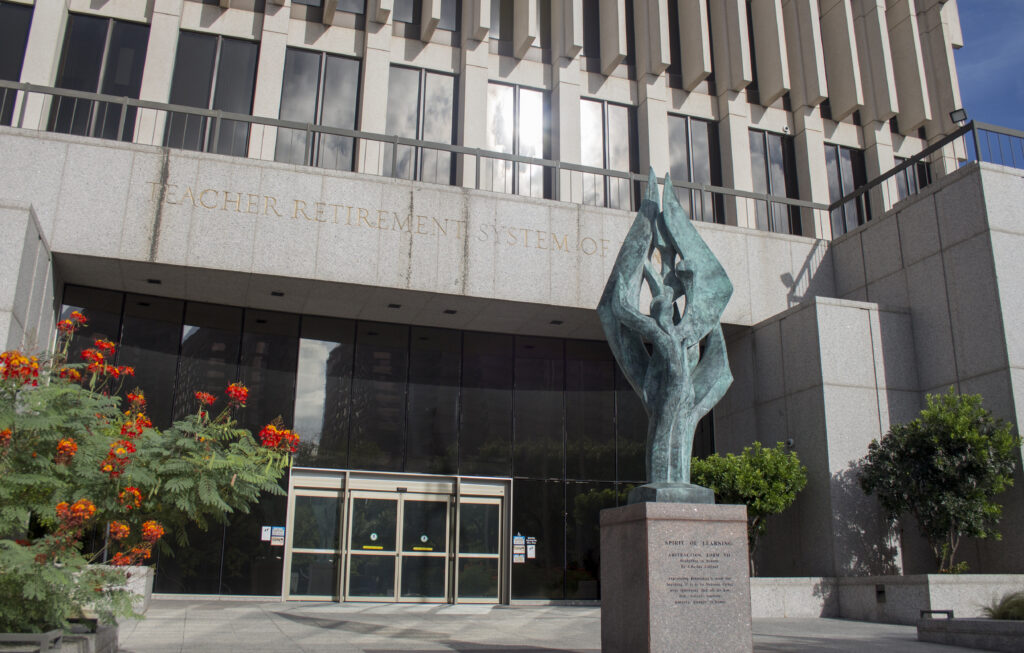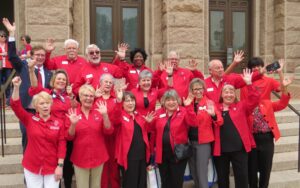The TRS Board of Trustees held committee meetings today. The five TRS Board committees discussed issues relevant to the full meeting tomorrow. The most pressing issue concerning TRS retirees is a change to the rate of return assumption, which was not discussed today, but will be voted on during tomorrow’s meeting.
As previously reported, TRS is considering changing the pension fund’s rate of return assumption from 8 percent to 7.25 percent. If this change occurs, it will significantly push back the time line for a cost-of-living adjustment for retirees.
The Texas Retired Teachers Association (TRTA) will testify at tomorrow’s meeting. TRTA will recommend that a more reasonable change to the rate of return assumption. A smaller change to the rate of return assumption would increase the possibility of a 13th check or cost-of-living-adjustment for retirees during the next legislative session. A change to the rate of return assumption will not affect annuity amounts for current retirees but will make it more expensive to provide for any benefit enhancements next session.
The two committees with pressing issues of interest were the TRS benefits committee and the TRS budget committee.
Benefits Committee
**The following information concerns active educator insurance. NOT retired educator insurance.**
The benefits committee discussed the TRS-ActiveCare insurance plan for active educators. The committee adopted recommendations for the 2019 plan year. The active teacher insurance saw a 7.1 percent cost increase. The cost increase will take the form of increased premiums and out-of-pocket cost increases, which vary depending upon plan choice.
ActiveCare has more than 450,000 participants. More than 250,000 participants in ActiveCare are now in the High Deductible plan option, which offers lower premium costs. ActiveCare HD is increasing its deductible from $2,500 to $2,750 for individual coverage. The ActiveCare HD family plan deductibles are increasing from $5,000 to $5,500. Prescription prices of non-preferred brands for this plan are also increasing from 20 percent to 50 percent. Finally, the maximum-out-of-pocket costs are increasing across all active care plans.
Retirees should take note of the health insurance problems faced by all TRS members. It will be of the utmost importance that retirees and active educators work together during the next legislative session to convince lawmakers that the health care crisis must be addressed with adequate funding. Although the health plans, TRS-Care and ActiveCare, come from separate funds, funding for our schools, TRS retirement and insurance all come from the state budget.
The details of the changes made to ActiveCare can be found here under Tab 3 on pages 9-11.
Here are some highlights from these changes to remember as we advocate for health care funding for all Texas educators.
- The sole source of funding for TRS-ActiveCare is premiums for the coverage selected.
- The state currently contributes only $75 per employee through the school finance formulas and has never increased its contribution since the program was created in the 2001 Legislature.
- School districts are mandated to contribute $150 per month, but more than 70 percent contribute more than that. The state funding for school finance formulas will decline to 39 percent over this biennium.
- Employee premiums funded 29 percent of the program in 2001. Employee premiums now pay for 68 percent of the program’s cost.
- Teachers pay between 35 to 70 percent of gross premiums depending on plan selection, but nationwide studies show that the employee pays on average only 18 percent of the cost of gross premiums.
All Texas educators, whether retired or not, are members of the TRS system. All Texas educators are impacted by the legislative funding decisions related to TRS. Communicate with your friends and family in the active educator community to help ensure that all parties have a successful campaign during the 86th Texas Legislature.
Budget Committee
The TRS budget committee discussed the process the agency will follow in adopting a legislative appropriations request for the 2020-21 state budget. This request must be submitted for consideration to the Governor’s office and the Legislative Budget Board in July. TRTA will be asking the Board tomorrow to include in this request any additional funds needed to make the pension fund actuarially sound.




